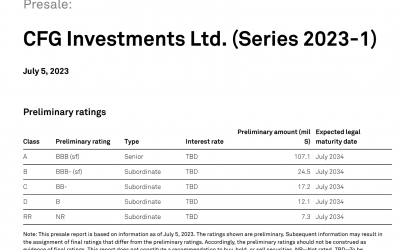When acquiring property there are many financing options beside your traditional mortgage. One unique financing option is the subject to mortgage. This approach has benefits for the buyer, yet you need to ensure it’s the best option for you.
A subject mortgage is a mortgage that is subject to an already existing one. The seller in a subject to deal is having the new buyer pay off their existing obligations, existing mortgage. The original underwriting is kept as is, even the name on the loan.
The seller is still responsible for the mortgage, but the buyer has agreed to make mortgage payments on the behalf of the seller. The buyer makes payment to the seller, who turns around and makes payment to the mortgage in return for the deed.
The buyer in this type of transaction does not formally assume the loan, but are given the deed for making the payments. These deals can be tweaked to fit the goals of their parties. Usually these deals have little to no money down, and when used properly and be a great strategy to acquire another property.
One big benefit of buying a “subject to” property is to take advantage of the interest rate on the existing loan, which could result in big savings.
Another benefit is that buyers with poor credit or not many financing options can buy a subject to property as a workaround. With an existing mortgage already in place, there is no need to pull credit or underwrite a new mortgage.
This leads to another benefit, the savings on closing costs, commissions, origination fees, and other costs that come with new loans.
Assumption vs Subject To
These two financing options may seem similar but there are key differences between the two. An assumed mortgage changes the responsibility of the loan, transferring it from the seller to the buyer. A Subject To structure still keeps the loan in the seller’s name, and there is still an obligation to pay.
Pros of a Subject To
Cash Flow & Ownership
Once the deal is closed the buyer takes control of the home, can gain access to cash flow and build equity.
Lower Cost to Acquire
The initial payment can vary based on the deal, and it may be lower than 20%. You can get a little more customization, and afterwards you just need to make the mortgage payments.
No Credit Needed
There is no new underwriting for a subject to deal, and the loan stays in the seller’s name. Since your credit isn’t used for the deal this can be a great workaround for people with poor credit. You may even find the opportunity to use your credit for a traditional loan while still carrying out a subject to.
Cons of a Subject To
Deals are Final
Like any deal, you have a moral obligation to keep your end. This unique payment structure is something that carries a lot of responsibility so be aware.
Loan May Be Called Due
A lender may call the loan due if they realize the home has been transferred.
There may be a Due on Sale Clause on the loan (which is common), giving them the right to call due the loan. However just because they have the option doesn’t mean they will.
This is an important risk to be aware of.
Insurance Requirements
You will need to gather a new insurance policy that names you as the insured on the policy.
Credit Risk
If you fail to make your payments, the seller’s credit is at risk and they may foreclose.
While rare, this unique property purchasing strategy can be used as a supplement to other financing options. Make sure to review your deal and ensure that this option is the best for your needs and financial situation.






